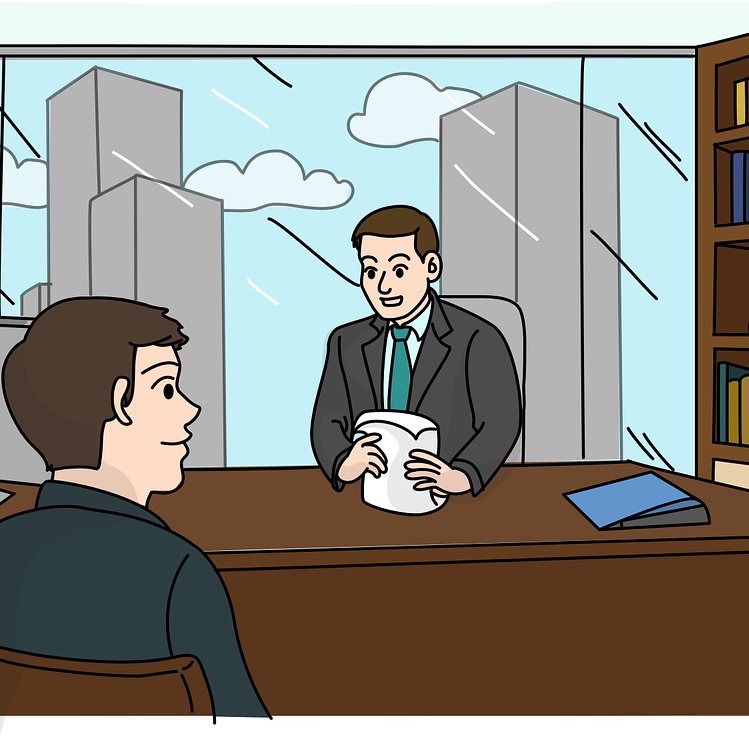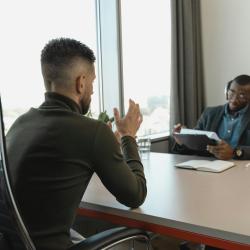How to Follow Up After an Interview
Embarking on the job-seeking journey often leads candidates to the pivotal step of the interview process. While acing the interview is crucial, many candidates overlook the subsequent steps – the follow-up. Following up after an interview not only demonstrates your continued interest in the position but also keeps you on the radar of potential employers. Here’s a comprehensive guide on how to follow up effectively after an interview.
1. Understanding the Importance of Follow-Up
Following up serves multiple purposes. It allows you to reiterate your interest, thank the interviewer for the opportunity, and reinforce the fit between your skills and the role. Additionally, it gives you an opportunity to address any points you might have missed during the interview. A well-crafted follow-up can tip the balance in your favor.
2. Timing is Everything
Understanding when to send your follow-up message is crucial. Ideally, you should send a thank-you email within 24 to 48 hours after the interview. This primes the employer’s memory and communicates genuine enthusiasm. However, avoid bombarding the employer with additional communication if you don’t receive an immediate response. Patience is key.
3. Crafting the Perfect Follow-Up Email
The follow-up email should be concise and purposeful. Here's a structure you can follow:
-
Subject Line: Make it relevant and clear. For example, “Thank you for the opportunity, [Interviewer's Name].”
-
Greeting: Address the interviewer by name to maintain politeness and personal connection.
-
Express Gratitude: Thank the interviewer for the opportunity to meet and discuss the role.
-
Reiterate Interest: Clearly state your enthusiasm for both the position and the company.
-
Highlight Key Points: Briefly re-emphasize any particular skills or experiences discussed during the interview that align with the role.
-
Closure: Express your hope to hear back and your openness to provide any further information if needed.
-
Sign Off Professionally: Use a polite closing, such as “Best regards” or “Sincerely,” followed by your full name.
Example:
Subject: Thank You for the Opportunity, [Interviewer's Name]
Hi [Interviewer's Name],
I hope this message finds you well. I wanted to extend my gratitude for the opportunity to interview for the [Job Title] position on [Date]. It was a pleasure to learn about the innovative projects at [Company Name] and discuss how I can contribute to such exciting work.
I am very enthusiastic about the possibility of joining your team and bringing my skills in [Your Skill/Experience] to [Company Name]. Please feel free to reach out if you need any more information from my end.
Thank you once again for the opportunity and for the insightful conversation.
Best regards,
[Your Full Name]
[Your LinkedIn Profile or Portfolio, if applicable]
[Your Contact Information]
4. When and How to Send a Second Follow-Up?
If you haven't received any feedback after a week or so beyond what was discussed in the interview, sending a polite second follow-up is appropriate. In this follow-up, courteously inquire about the status of the decision while reiterating your interest. Avoid sounding impatient or demanding; rather, keep the tone friendly and professional.
5. Handling Rejections Gracefully
In cases where you're informed that you weren't selected, maintain professionalism. Send a gracious reply thanking them for the opportunity and expressing a desire to be considered for future openings. This keeps the door open for future opportunities, showing that you hold no hard feelings and are mature in your approach.
6. Keep Applying and Networking
While awaiting a response, continue to apply to other opportunities and network within your industry. A proactive approach will maximize your chances of landing a position that fits your aspirations.
Conclusion
The post-interview follow-up is more than just a formality; it is an essential element in the job search process that can differentiate you from other candidates. Leveraging the strategies discussed can enhance your prospects of securing the position you desire. Remember, thoughtful communication is the bridge connecting a successful interview to a promising career opportunity.






















